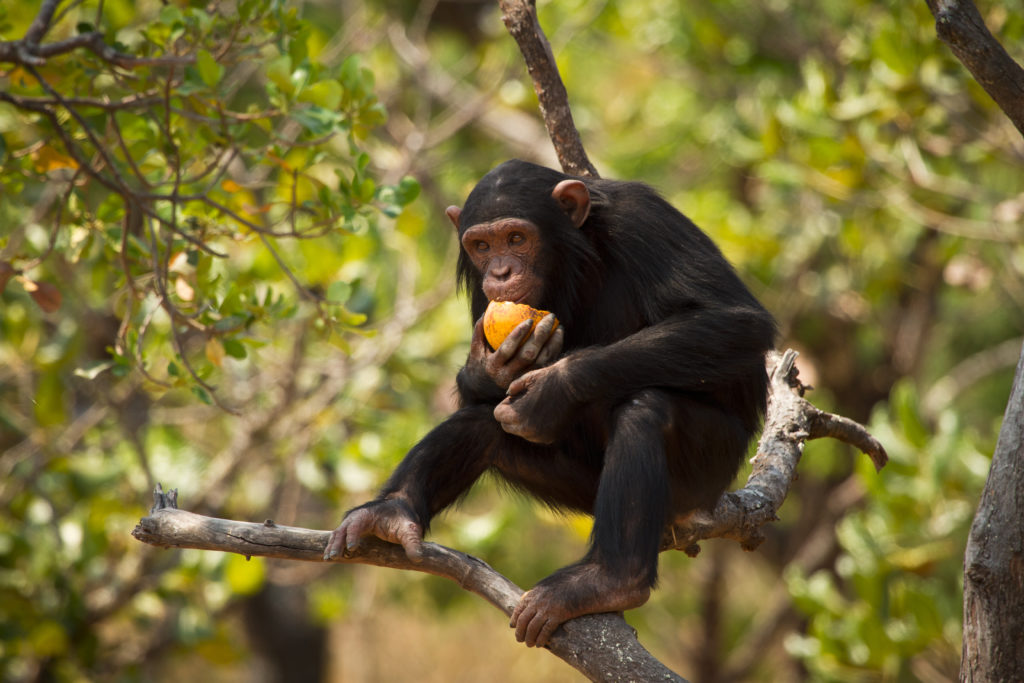
This had to be a story I covered – monkeys and alcohol sounds too good to pass up. But this is also linked to the “drunken monkey” hypothesis: that humans developed their love for alcohol in earlier primitive times accidentally, and then intentionally, eating fruit that had fermented.
Indeed, UC Berkeley biologist Robert Dudley has been fascinated by the human attraction to alcohol and outlined the drunken monkey hypothesis in his book, eight years ago now. In this study lead by Christina Campbell, they tracked spider monkeys in Panama and measured alcohol content in their discarded fruit and found that these contained 1-2% alcohol.
What’s more they then measured urine of these monkeys and could see metabolites which are produced by the metabolism of alcohol. This shows that not only were these monkeys consuming alcohol but that they could metabolise this. This is a direct test of the drunken monkey hypothesis and suggests that our affinity to alcohol developed in a similar way.
However, it is no excuse to get stuck into your booze – research has shown that just about any dose of alcohol is bad for you – on the other hand this may suggest that low levels of alcohol consistently may be ok – just that our alcoholic beverages all contain a lot more than this 1-2%.
Reference:
Christina J. Campbell, Aleksey Maro, Victoria Weaver, Robert Dudley.
Dietary ethanol ingestion by free-ranging spider monkeys (Ateles geoffroyi ).
Royal Society Open Science, 2022; 9 (3)
DOI: 10.1098/rsos.211729
More Quick Hits
Art Engages the Social brain
Quick HitsDaily brief research updates from the cognitive sciences reported in last week’s Quick Hits on how engaging in the arts has a relationship with self-control and avoidance of disagreeable and criminal behaviour and that is why this...
Swearing can increase strength, self-confidence, and risky behaviour
Quick HitsDaily brief research updates from the cognitive sciences wearing is frowned upon in many circumstances but is also used by many people in casual situations and particularly by comedians. So why do we swear if it is taboo? A team of...
Neurons for alcohol withdrawal
I’ve reported on alcohol a number of times. Most recently reporting that even low quantities of alcohol appear to age the brain (however, higher quantities are much worse). Researchers had previously found that a signalling molecule pathway in the brain seemed to...
How the Arts Help Self Control
Quick HitsDaily brief research updates from the cognitive sciencesome people criticise arts education, thinking that it is more play and has no clear life function. Normally a certain type of conservative. This is short minded; we know that arts...
How the gut communicates with your brain
Quick HitsDaily brief research updates from the cognitive sciences ust after publishing the article on Serotonin and stating that the gut and brain’s serotonin systems can be considered separate entities, out comes a piece of research to show that...
Are you an “elite sleeper”? It’s in your genes.
Quick HitsDaily brief research updates from the cognitive sciences ’ve reported many times on different aspects of sleep and how important this is for health in general and for brain health in particular. You can go here for a short review of all...
Controlling social mingling by laser
Quick HitsDaily brief research updates from the cognitive sciences here has been plenty of research into brain areas that contribute to our social brain but these researchers around Stephen Mague at Duke University went a step, or two, further and...
Exercise is Infectious
Quick HitsDaily brief research updates from the cognitive sciences his is an older study (2017) I came across and found fascinating. As many of you regular readers will know I have reported many times on the benefits of exercise. But this study was...
Breastfeeding Improves Mother’s Cognitive Abilities — Years Later
Quick HitsDaily brief research updates from the cognitive sciences o are you saying that breast feeding is not only good for the infant but also the mother?!Yes, we’ve know for a long, long time that breastfeeding is very good for the infant. Over...
Mothers Can Pass on Stress to Future Generations
Quick HitsDaily brief research updates from the cognitive sciences presume you’re not just talking about stressed mothers stressing out their kids and/or grandchildren?Not precisely. I’m talking about passing on stress activation patterns in DNA...










